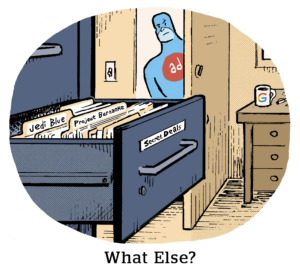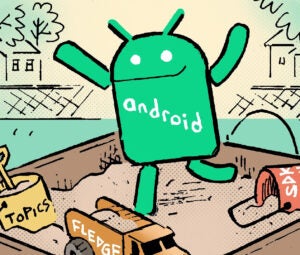NBCUniversal is kicking off the new year with a programmatic progress report during CES in Las Vegas this week.
Two years since NBCU began serving programmatic ads on Peacock, about 30% of Peacock ads are sold programmatically. While linear TV ad growth is plateauing (or even declining for some networks), NBCU’s programmatic ad revenue rose 50% last year compared to 2022.
NBCU attributes much of this growth to recent partnerships with alternative demand-side platforms, such as StackAdapt, Simpli.fi and Blockboard that service local and midsize advertisers.
Programmatic poses “a really big opportunity for smaller companies to get into streaming” by simplifying the process of buying TV ads, Ryan McConville, NBCU EVP of ad platforms and operations, told AdExchanger. And more brand clients equal more ad revenue for publishers.
Specifically, NBCU zeroed in on live events, retail data and identity to win over more marketers.
Batter up!
Live events, particularly sports, have been a focus for many streamers in the last year.
NBCU added the vast majority of Peacock’s live content last year, McConville said, and started selling those commercials programmatically in February, initially only through The Trade Desk and Roku’s OneView DSP. And, naturally, demand for live inventory jumped as NBCU made its supply available through a wider range of DSPs throughout the past year.
The programmer has seen a 117% increase in the number of advertisers serving ads to live content on Peacock programmatically compared to this time last year.
Late last year, NBCU also started signaling to advertisers in its bids whether its ad calls are for live or on-demand supply, McConville said. Some advertisers like TV for the opportunity to target concurrent viewers, all watching one thing at the same time.
More specificity in the bid stream is not only a way to address buy-side demand for transparency, but it can attract more advertisers that are only looking for live TV supply, McConville said. For example, plenty of marketers want to tack on live events to programmatic campaigns because of the high engagement associated with appointment viewing.
Add audience to cart?
Speaking of signals, data is what keeps advertisers interested in continued programmatic investment, McConville said.
And retail data is especially hot right now.
NBCU was part of a beta program Amazon launched in October to let publishers match their data to the ecommerce giant’s shopper data through the Amazon Publisher Cloud. NBCU also partnered with Walmart over the summer to test the impact of shopper marketing ad campaigns on Peacock.
Amazon and Walmart are both bona fide walled gardens – advertisers can only access this data for Peacock buys through Amazon’s or Walmart’s DSP, respectively – but, hey, it’s a start. It’s too early for NBCU to share concrete results from these retail integrations, but what matters is that buyers want the ability to “apply retail data to streaming audiences,” McConville said.
ID, please
As for identity, NBCU is one of several connected TV programmers placing bets on UID2.
Even though CTV inventory has never used browser-style cookies, cookie deprecation can muddy CTV ad targeting. Advertisers are having a harder time comparing streaming campaigns to ad performance on other channels, for instance, including for retargeting purposes. So, buyers are relying more heavily on IP addresses for campaign attribution (like connecting a commercial to an online purchase) or to match IDs to households. Many media companies and brands are tapping UID2 specifically for CTV because it uses IP addresses to group UIDs by household.
NBCU started testing UID2 with The Trade Desk last year, and while McConville declined to share specific details about the results, he said UID2 has proven a more reliable identity signal for cross-platform campaigns compared to third-party data.
And the more NBCU can tie its programmatic supply to real purchases the more buyers will, well, buy.
Retail and programmatic automation, according to McConville, will be the keys that unlock streaming ads for a much larger pool of advertisers.
















